| Release List | Reviews | Price Search | Shop | Newsletter | Forum | DVD Giveaways | Blu-Ray/ HD DVD | Advertise |
| Reviews & Columns |
|
Reviews DVD TV on DVD Blu-ray International DVDs Theatrical Reviews by Studio Video Games Features Collector Series DVDs Easter Egg Database Interviews DVD Talk TV DVD Talk Radio Feature Articles Columns Anime Talk DVD Savant HD Talk Horror DVDs Silent DVD
|
DVD Talk Forum |
|
|
| Resources |
|
DVD Price Search Customer Service #'s RCE Info Links |
|
Columns
|
 |
RASPUTIN And The Libel Lawyers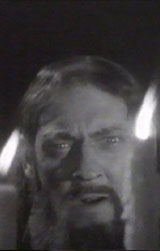 We've all read the familiar credit line "...the characters in this photoplay are fictional and bear no resemblance to real persons living or dead..." Ever wonder where it came from? In 1932 MGM released RASPUTIN AND THE EMPRESS, a lavish retelling of the last days of Czarist Russia in the court of Nicholas and Alexandra. The story boasted weighty roles for all three of the Barrymores, MGM's most famous acting family. A character named Prince Chegodieff was created for John, Ethel played Alexandra, and Lionel got the plum role of the power-crazed monk Rasputin. Events and characters were embellished and combined, but by and large the historical content stayed faithful to the facts. Too faithful. Lying in wait for the release of RASPUTIN was Princess Irina Yousoupoff, the genuine niece of the Czar. Living in exile in Paris, she must have found out about the film's content before its release. When RASPUTIN premiered simultaneously in several European capitols, the Princess had a separate libel lawsuit ready to file in each country where the film played. In her suit she claimed that the film's character Princess Natasha, played by Diana Wynward, was meant to represent her. This Princess Natasha is depicted as sexually compromised by the evil Rasputin, thus smearing the honor of the real Princess Irina, according to the lawsuit. In 1932 the events of the Russian Revolution were only fifteen years old, and sympathy in the West for the large community of exiled White Russians was high.
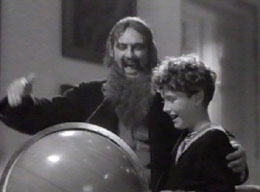 The Princess won her case in London, where the film had been released as RASPUTIN, THE MAD MONK, to the tune of $125,000, an enormous sum in the depression era. Helping the case become worldwide news was dramatic testimony that included a firsthand account by Irina's husband, Prince Yousoupoff, of the gruesome details of Rasputin's untimely end. This is the famous, and apparently true, tale in which the madman absorbed poison, bullets, and brutal clubbings with little effect. Incidentally, this is also the highlight of the film, and unexpectedly violent for its time.
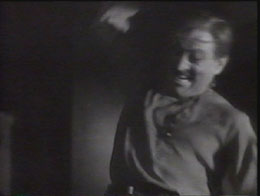 MGM probably identified with Rasputin's torment; it reportedly later settled for yet higher sums to keep the case out of courts in the U.S. and elsewhere.
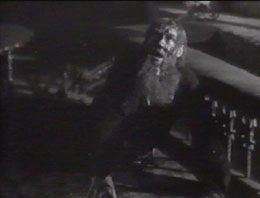 Frederick S. Clarke detailed this fascinating bit of film history in the very first issue of his Cinefantastique magazine back in 1970*. He mentions MGM having to apologize to the Princess and amending the film with the 'purely fictional' notice. What he doesn't talk about is the film itself, which I believe was heavily censored by MGM to remove those scenes offensive to the Princess. Prints of RASPUTIN AND THE EMPRESS shown on Home Video and on Cable TV's Turner Classic Movies have an identical series of frustrating cuts, all around the 'Princess Natasha' character. When Lionel Barrymore's Rasputin begins to consolidate his power in the Czar's court, he uses some pretext to get Natasha to his private apartment, where ... a jarring cut curtails the scene. Soon thereafter, Natasha is seen moping and distressed whenever Rasputin's name is mentioned, and panics at the thought of the monk being left alone with one of the royal children. Natasha's role is crucial in the scene where Alexandra finally sees through Rasputin's deceit; the scene is chopped just as the distraught Princess is finally about to disclose some awful personal secret to the Czarina. It seems clear that in the original cut Princess Natasha was either seduced or raped by the evil monk, with or without the aid of hypnosis, and threatened with humiliation should she speak against him. This was a pre-Hays code production, when such sordid plot complications weren't unusual. If the subplot had been deemed too risque, it would have been jettisoned in the script stage. That's the American way.
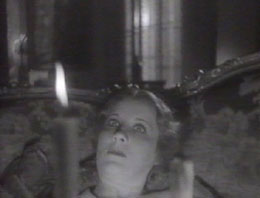
RASPUTIN AND THE EMPRESS ended up being a fiscal headache for MGM. Even with the cuts it manages to tell its story well, and holds its own against 1971's NICHOLAS AND ALEXANDRA, which covers some of the same events. ---------------------------- Frederick S. Clarke, "Rasputin on Film", Cinefantastique, volume 1, number 1,1970.
Text © Copyright 1997 Glenn Erickson
Review Staff | About DVD Talk | Newsletter Subscribe | Join DVD Talk Forum |
|
| Release List | Reviews | Price Search | Shop | SUBSCRIBE | Forum | DVD Giveaways | Blu-Ray/ HD DVD | Advertise |





